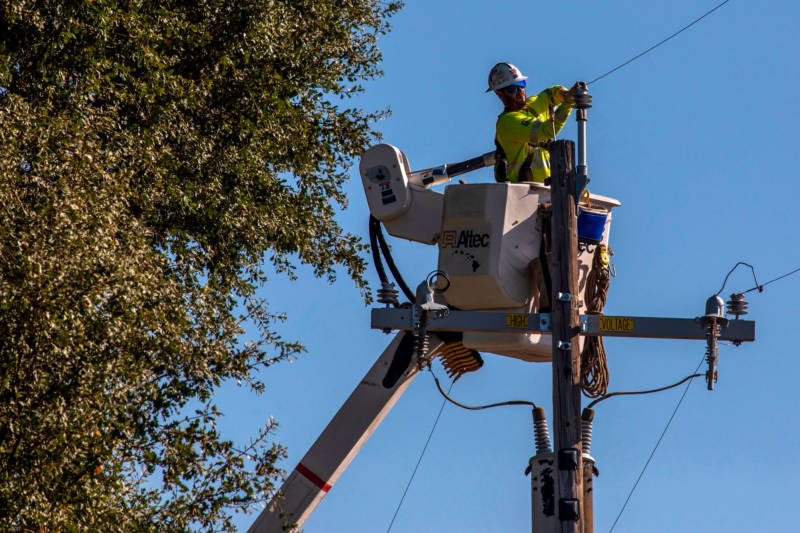Under new state legislation announced Tuesday, California’s attorney general and local district attorneys would be able to pursue legal action against utility companies that violate safety regulations.
Introduced by a group of Bay Area legislators, in partnership with Alameda County District Attorney Nancy O’Malley, the Utility Accountability and Wildfire Prevention Act is an effort to hold utilities like PG&E accountable for safely maintaining their infrastructure and properly trimming vegetation near power lines to reduce the threat of wildfire.
Currently, that oversight role falls squarely on the California Public Utilities Commission, and if a utility is suspected of violating regulations, local authorities must seek redress through that agency.
But in the wake of a series of deadly wildfires in 2017 and 2018 found to have been sparked by PG&E equipment, a growing chorus of state officials contend that the CPUC can’t go it alone in ensuring all utilities in the state comply with safety rules.
“Local eyes and ears on the ground that really know what’s happening in their community is crucial to our safety,” said Assemblywoman Rebecca Bauer-Kahan, D-Orinda, who co-authored the bill. “They’re the ones that know if the trees are being trimmed, because they’re the ones living in our neighborhoods.”

